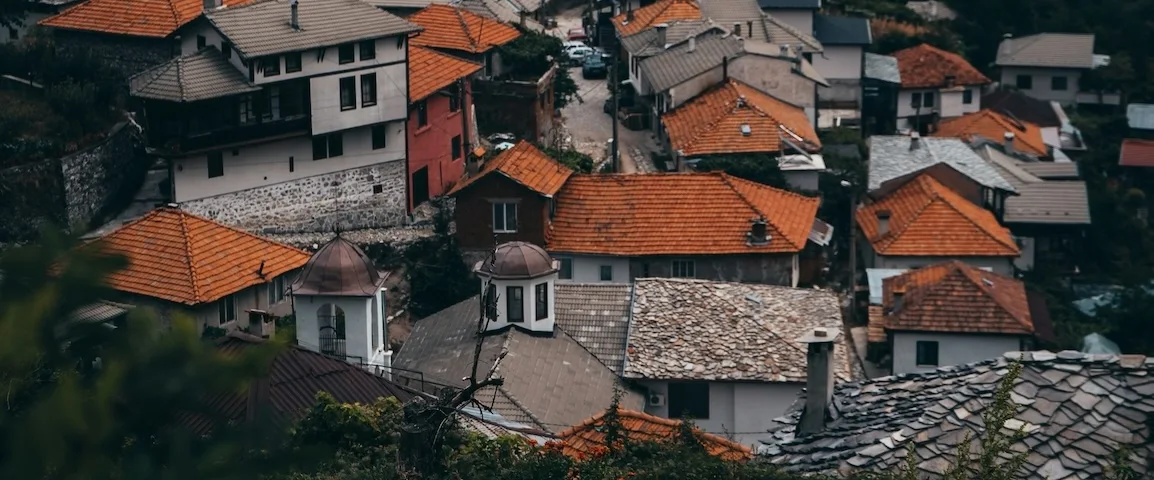Home > A Complete Guide to Long Stay Visas for Bulgaria

A Complete Guide to Long Stay Visas for Bulgaria
If you're planning to spend multiple months in Bulgaria, the topic of visas has likely crossed your mind.
This Balkan country sees millions of travelers each year, and whether or not a traveler needs a visa to stay there depends on a few different things.
In this guide, we will talk about who needs a long stay visa for Bulgaria, what the eligibility requirements are, and how to apply.
While the experience may feel overwhelming out the gate, the process is relatively straightforward with the right tips and information. We're here to help.
Do I need a long stay visa for Bulgaria?
It depends on a couple of factors.
Bulgaria offers different types of visas for different types of travelers - and whether or not you need a long stay visa depends on:
- How long you plan to stay in Bulgaria
- Your nationality
How long you plan to stay in Bulgaria
Bulgaria is a member of the Schengen area, which means their visa requirements meet those of the entire zone. Bulgaria is also a member of the European Union.
In general, foreigners who wish to spend more than 90 days in Bulgaria must apply for a long stay visa. (If you're an EU/Schengen country citizen, you are exempt).
Bulgaria long stay visas allow foreigners to stay in the country for 90-180 days, depending on the duration of your visa. In some strictly limited cases, travelers can get a long stay visa that lasts up to 1 year (such as for students and researchers).
For stays longer than 180 days or to travel to Bulgaria with the intention of immigration, there are typically additional processes that need to be done, such as applying for residence.
Your nationality
The second factor is your nationality. European Union and Schengen country citizens do not need a visa to spend time in Bulgaria.
If you're not an EU/Schengen citizen, you most likely need a long stay Bulgaria visa. This includes US and UK citizens, as well as dozens of others.

Which Bulgaria long stay visa do I need?
For your extended stay in Bulgaria, you will need to apply for a long stay visa. You may also see long stay visas referred to as national visas or Type D visas.
All three of these terms refer to the same thing.
There isn't just one general type of long stay visa for Bulgaria. You will need to apply for a specific one, and the one you need depends on your reason for spending time in Bulgaria.
Common Bulgarian long stay visa types include:
- Study
- Work
- Family reunification
The categories are fairly self-explanatory. Students will likely need to apply for the study visa, for example.

How to apply for a Bulgaria long stay visa
First and foremost, you need to make sure that you meet the eligibility requirements necessary to apply.
- You must be able to prove your need for a long stay visa. This is done through relevant documentation.
- You must be able to attend an in-person appointment at a Bulgarian consulate/embassy in your country of residence.
- You must meet minimum financial requirements showing that you can provide for yourself during your entire stay in Bulgaria.
While these are some requirements you need to meet to be eligible to apply, there are other required documents you will have to provide when you apply. We will cover those in just a moment.
To apply for a long stay visa for Bulgaria, the steps are typically as follows:
- Find which Bulgarian long stay visa you need.
- Make sure you meet the eligibility requirements.
- Collect all of the necessary documents for your visa application.
- Book an appointment at a Bulgarian consulate/embassy in your country of residence.
- Attend your appointment, bringing all of the physical documents with you.
- Submit your documents at your appointment.
- Wait for a decision regarding your long stay visa.

Which documents are required?
Your visa application will be a collection of requested documents. You must collect all of these documents before attending your visa appointment.
To apply for a long stay visa for Bulgaria, you will need to provide:
- A completed and signed Bulgaria visa application form.
- A "regular foreign travel document" (a valid passport).
- One recent color photograph (needs to be passport-sized).
- An original and two copies of the long stay visa application form.
- Proof of financial means (proof that you can sustain yourself for the duration of your stay). You must show that you meet or exceed the minimum monthly wage in Bulgaria.
- Proof of accommodation (where you are staying during your trip to Bulgaria).
- Proof of health insurance that covers you in Bulgaria.
- A certificate of previous convictions (if over the age of 18).
Depending on which type of visa you apply for, there may be additional documents required in order to prove your need to reside in Bulgaria (such as university enrollment for students or work contracts for professionals).
